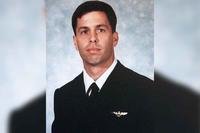- Cover Letters
- Jobs I've Applied To
- Saved Searches
- Subscriptions
- Marine Corps
- Coast Guard
- Space Force
- Military Podcasts
- Benefits Home
- Military Pay and Money
- Veteran Health Care
- VA eBenefits
- Veteran Job Search
- Military Skills Translator
- Upload Your Resume
- Veteran Employment Project
- Vet Friendly Employers
- Career Advice
- Military Life Home
- Military Trivia Game
- Veterans Day
- Spouse & Family
- Military History
- Discounts Home
- Featured Discounts
- Veterans Day Restaurant Discounts
- Electronics
- Join the Military Home
- Contact a Recruiter
- Military Fitness


Navy Expands Dependent Travel Eligibility
The U.S. Navy has expanded the eligible categories for advanced dependent travel (ADT) and delayed dependent travel (DDT). For permanent change of station (PCS) moves within the 50 states, the policy allows for dependent travel of up to six months before or after the sponsoring Sailor's PCS move in the following situations: spousal employment or education, dependents in elementary or secondary school (K-12), dependent enrolled in the Exceptional Family Member Program, or caring for an immediate family member with a chronic or long-term illness. Requests for DDT or ADT must be submitted to Navy Personnel Command (PERS-451). For more information, email [email protected] .
For more PCS guides and tips, visit the Military.com PCS section .
Select Service
- National Guard
You may also like

The Carney, which returned home earlier this week, was the only ship the Navy publicly acknowledged had been awarded the...

It was the second straight year Austin gave the commissioning speech at the Navy-Marine Corps Memorial Stadium.

The first night of Operation Desert Storm, Lt. Cmdr. Michael Scott Speicher took off from the flight deck of the USS Saratoga...

This year, Davids will take to the stage at the United States Naval Academy’s graduation and commissioning ceremony as...
UK Edition Change
- UK Politics
- News Videos
- Paris 2024 Olympics
- Rugby Union
- Sport Videos
- John Rentoul
- Mary Dejevsky
- Andrew Grice
- Sean O’Grady
- Photography
- Theatre & Dance
- Culture Videos
- Fitness & Wellbeing
- Food & Drink
- Health & Families
- Royal Family
- Electric Vehicles
- Car Insurance Deals
- Lifestyle Videos
- UK Hotel Reviews
- News & Advice
- Simon Calder
- Australia & New Zealand
- South America
- C. America & Caribbean
- Middle East
- Politics Explained
- News Analysis
- Today’s Edition
- Home & Garden
- Broadband deals
- Fashion & Beauty
- Travel & Outdoors
- Sports & Fitness
- Sustainable Living
- Climate Videos
- Solar Panels
- Behind The Headlines
- On The Ground
- Decomplicated
- You Ask The Questions
- Binge Watch
- Travel Smart
- Watch on your TV
- Crosswords & Puzzles
- Most Commented
- Newsletters
- Ask Me Anything
- Virtual Events
- Betting Sites
- Online Casinos
- Wine Offers

Thank you for registering
Please refresh the page or navigate to another page on the site to be automatically logged in Please refresh your browser to be logged in
‘Duty to warn’ guided US advance warning of the Moscow attack. Adversaries don’t always listen
A little-known u.s. intelligence principle called the “duty to warn” came into play ahead of the deadly attack on moscow’s outskirts, article bookmarked.
Find your bookmarks in your Independent Premium section, under my profile

For free real time breaking news alerts sent straight to your inbox sign up to our breaking news emails
Sign up to our free breaking news emails, thanks for signing up to the breaking news email.
The U.S. warning to Russia couldn't have been plainer: Two weeks before the deadliest attack in Russia in years, Americans had publicly and privately advised President Vladimir Putin 's government that “extremists” had “imminent plans” for just such slaughter.
The United States shared those advance intelligence indications under a tenet of the U.S. intelligence community called the “duty to warn," which obliges U.S. intelligence officials to lean toward sharing knowledge of a dire threat if conditions allow. That holds whether the targets are allies, adversaries or somewhere in between.
There's little sign Russia acted to try to head off Friday's attack at a concert hall on Moscow 's edge, which killed more than 130 people. The Islamic State's affiliate in Afghanistan claimed responsibility, and the U.S. said it has information backing up the extremist group's claim.
John Kirby , the Biden administration's national security spokesman, made clear that the warning shouldn't be seen as a breakthrough in U.S.-Russian relations or intelligence-sharing. “Yeah, look, there's not going to be security assistance with Russia and the United States,” Kirby told reporters Monday.
“We had a duty to warn them of information that we had, clearly that they didn't have. We did that," Kirby said.
Such warnings aren't always heeded — the United States has dropped the ball in the past on at least one Russian warning of extremist threats in the United States.
Here's a look at the duty to warn, how it came about, and how it can play out when American intelligence officers learn militants are poised to strike.
AHEAD OF THE ATTACK, A CLEAR US WARNING
On March 7, the U.S. government went public with a remarkably precise warning: The U.S. Embassy in Moscow was monitoring unspecified reports that “extremists have imminent plans to target large gatherings in Moscow, to include concerts.” It warned U.S. citizens in Moscow to avoid big events over the next 48 hours.
U.S. officials said after the attack that they had shared the warning with Russian officials as well, under the duty to warn, but gave no details how.
Putin's public reaction was dismissive. Three days before the attack, he condemned what he called “provocative statements” from the West about possible attacks within Russia. Such warnings were aimed at intimidating Russians and destabilizing the country, he said.
DUTY TO WARN
The U.S. emphasis on sharing threat warnings increased after al-Qaeda's Aug. 7, 1998, attacks on the U.S. embassies in Kenya and Tanzania. While dozens of U.S. citizens and government employees of different nationalities were killed, Kenyans made up the majority of the victims.
In 2015, then national intelligence director James Clapper formalized duty to warn in an official directive: The U.S. intelligence community bore “a responsibility to warn U.S. and non-U.S. persons of impending threats of intentional killing, serious bodily injury or kidnapping."
The order also spelled out occasions when intelligence officials could waive the duty to warn and stay silent despite looming danger. That includes when the target is an assassin or other extreme bad guy, or when disclosing the warning could “unduly endanger” U.S. personnel or their sources, those of intelligence partners among foreign governments, or their intelligence or defense operations.
SHARED WARNINGS AND THE BIDEN ADMINISTRATION
The intelligence community under former President Donald Trump faced accusations it had failed to warn U.S.-based journalist Jamal Khashoggi of a complex plot by Saudi officials that ended with his 2018 killing inside the Saudi consulate in Istanbul. Media foundations say U.S. intelligence agencies did not respond to requests for any records showing whether they knew of the plot in advance.
Under the Biden administration, the sharing of threats to other governments has flourished, although there's no way to know of any threats that the U.S. intelligence community may have decided to let play out, without warning the targets.
Strategic U.S. dissemination of intelligence hit a high point in the months before Russia's February 2022 invasion of Ukraine. That's when the U.S. opted to declassify key intelligence on Russia's invasion plans to rally allies and Ukraine, and — unsuccessfully — to pressure Russia to call off its troops.
In a Foreign Affairs article this spring, CIA Director William Burns spoke of a growing awareness of the value of “intelligence diplomacy" — the strategic use of intelligence findings to bolster allies and confound adversaries.
SHARING ISN'T ALWAYS CARING
The duty to warn doesn't mean the other side has a duty to listen. That's especially so when the other side is an adversary.
In January, a U.S. official said, Americans had given a similar warning to Iranian officials ahead of bombings in the Iranian city of Kerman. The Islamic State claimed responsibility for that attack, twin suicide bombings that killed 95 people.
It's not clear if the warning led to any additional security precautions at the event, a commemoration of the 2020 killing of an Iranian general by a U.S. drone strike.
In 2004, another adversary, the government of Venezuelan President Hugo Chávez, an anti-U.S. populist, was “suspicious and incredulous” when U.S. officials relayed a warning of an extremist plot to kill him, Stephen McFarland, a former U.S. diplomat in Central and South America, said Monday on X.
That kind of deep distrust has often kept threat warnings from landing as intended when it comes to Russia and the United States. That's true even with common dangers that both face, including the Islamic State and al-Qaida.
Historically, Russians can regard any U.S. attempt at counterintelligence cooperation against that kind of shared threat as naive, and look for any openings to use it for political gain or to undermine U.S. intelligence-gathering, Steven Hall, a longtime U.S. intelligence official in the former Soviet Union, wrote after his retirement in 2015.
In 2013, it was U.S. officials who, tragically, failed adequately to follow up on a Russian warning, a U.S. government review concluded later.
Concerned the man posed a threat to Russia as well, Russia's Federal Security Service in 2011 warned U.S. officials that a U.S. resident, Tamerlan Tsarnaev, was an adherent of extremist groups. After U.S. officials concluded Tsarnaev was not a threat in the U.S., he and his younger brother planted bombs along the route of the Boston Marathon, killing three people and injuring hundreds.
AP Diplomatic Writer Matthew Lee contributed to this report.
Subscribe to Independent Premium to bookmark this article
Want to bookmark your favourite articles and stories to read or reference later? Start your Independent Premium subscription today.
New to The Independent?
Or if you would prefer:
Want an ad-free experience?
Hi {{indy.fullName}}
- My Independent Premium
- Account details
- Help centre

IMAGES
COMMENTS
of dependents, may request to execute advanced dependent travel (ADT) or delayed dependent travel (DDT) if the ADT or DDT location of the dependents is the Continental U.S., Alaska or Hawaii. DDT or ADT for up to 180 days may be requested for: a. A spouse who is gainfully employed (defined as earning compensation for full time work)
Advance Dependent Travel Requests (ADT): ADT allows the Sailor to send their dependents early to the next PDS location and receive a housing allowance for that location prior to the Sailor arriving at the new PDS location. NOTE: Only one housing allowance is authorized. Refer to JTR 050401 for the travel of dependents.
• The Travel Voucher Wizard walks you through 8 sequential steps to complete your Travel Voucher (DD FORM 1351-2), upload documentation, review/print a pdf version of your Travel Voucher, and submit to your CPPA for approval. IMPORTANT NOTES: • Your official travel start and end dates are the dates stamped on your orders.
Add or update dependent information in relation to current voucher. Note: This step will not display for a "Member-only" Travel Voucher. Note: Enter the dependents' address at the time your orders were received. If you already received a travel advance that included DLA, you still need to claim it by selecting "Yes" here.
For Service Members with dependents, non-concurrent dependent travel entitlements will vary depending on each case. NPC is standing by to address each specific case and authorized entitlements based on current location and situation. 3.B. Other Official Travel (Meetings, Conferences, Site Visits, etc). 3.B.1.
(a) Joint Travel Regulations (b) ASN (M&RA) memo of 23 Apr 19 (c) DCNO (NI) memo of 24 Apr 18 1. In line with references (a) and (b), members in receipt of permanent change of station (PCS) orders may be approved for advanced or delayed dependent travel for up to six months when executing PCS orders within the United States. For the purposes of ...
Travel Advance Entitlement When you perform a Civilian Permanent Change of Station move, you can request a travel advance (early payment of entitlement) through DFAS to assist with the out-of-pocket expenses. ... En route Travel - Employee and/or Spouse/Dependents; Temporary Quarters (Actual Expense method only)-Employee and/or Spouse;
One of these improvements is streamlining the existing travel advance process., The summer season is a very busy time for PCS moves. The Navy is overhauling the PCS experience to reduce the stress ...
The U.S. Navy has expanded the eligible categories for advanced dependent travel (ADT) and delayed dependent travel (DDT). For permanent change of station (PCS) moves within the 50 states, the ...
Get FREE email communications from Fodor's Travel, covering must-see travel destinations, expert trip planning advice, and travel inspiration to fuel your passion. ...
for dependents should reflect dates of travel if different from member. Complete the travel voucher within 5 days of check-in to avoid recoupment of travel advances, overpayment of entitlements, and/or delay in processing. Please view the PCS Travel Voucher instructions steps 64-86. 3 Have your DLA/TLA/TLE amounts available
We are very much willing to prepare in advance and learn the basics of the Cyrillic alphabet to help us have a better experience. I would be very interested in learning more about your experience in Russia and receiving any additional information you can provide on independent travel there, starting perhaps with obtaining the visa. ...
The United States shared those advance intelligence indications under a tenet of the U.S. intelligence community called the "duty to warn," which obliges U.S. intelligence officials to lean ...
1. Dependent Entry Approval (DEA) is a Navy process to obtain permission from an area commander to bring dependents into a specific area. Approval/disapproval is based on Status of Forces Agreements (SOFA), family support capabilities and/or limited local support based on geographically isolated areas, and is only required for the areas listed in the link below.
The world's advanced economies are moving toward an agreement that would use profits from Russia's frozen assets to help Ukraine. These maps show Russia's recent advances in the war.
Completing your travel claim DD Form 1351-2. Block 1: Electronic Funds Transfer (EFT) is mandatory. Note: You must submit a NPPSC 7000/1 (EFT) ONLY if you have changed your financial institution. Note: Enter GOVCC balance for this travel if you used a government travel card to pay for travel expenses. Block 2: Your name, NOT dependent's name.
The assaults have hit military targets in Russian-occupied territory in Ukraine. Pressure is now mounting on Washington to let Kyiv fire the missiles into Russia itself.
purposes of student dependent travel: a. A student, who is also a member of a reserve component, is a student dependent, unless the student is on active duty. b. A cadet or midshipman, attending one of the uniformed services academies, is not eligible for student dependent travel. c. A servicemember's spouse cannot be a student dependent.
Basic Pay, Basic Allowance for Housing (BAH), and Basic Allowance for Subsistence (BAS) are the fundamental components of military pay. Members who are married or have legitimate dependents are paid at a higher rate. An official military resource, myPay brings your pay information right to your computer in a secure, user-friendly environment.
a. Dislocation allowance entitlement for a servicemember married to another servicemember is described in reference (a), Chapter 5, Part G. (1) Additionally, children of that marriage may travel under either, but not both, parent's permanent change of station (PCS) orders. (2) The parent claiming dependent travel of the children would be ...